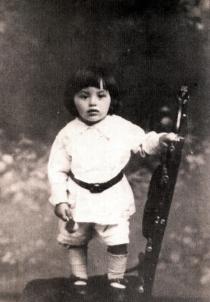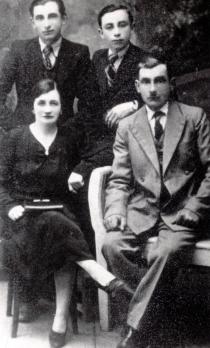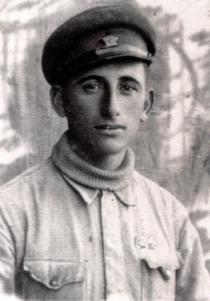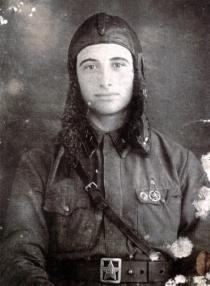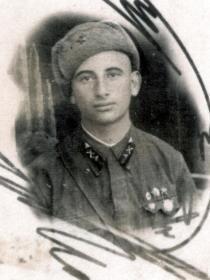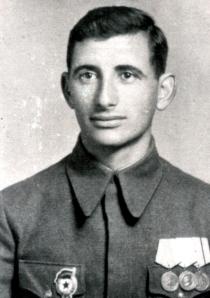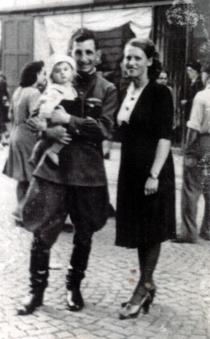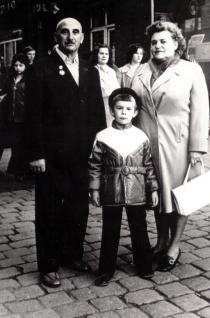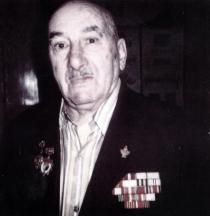I, Efim Finkel, am 1.5. The photo was made at the request of my grandfather on my father's side Lazar Finkel, in Razdelnaya Odessa region, 1921.
My parents got married in 1917. After the wedding my parents lived with my mother's parents. Both families gave them some money as a wedding gift and my father bought a small shabby house for this money. My father and his brothers removed this house and built a new one from rock shell. My parents moved to their new house before I was born. I was born on 18 February 1920.
My mother spoke Yiddish and Russian with us. I was a naughty child and my mother had to punish me every now and then: she would give me a spank or tell me to stand in a corner for misbehavior.. My brother was a quiet and obedient boy. Our father was always busy with his work and mother worked a lot about the house. They couldn't spend much time with us and I often visited my father's parents. My grandparents only spoke Yiddish I liked to spend time with my grandfather Lazar that taught me many things: he told me Biblical stories and about Jewish traditions. Our grandparents often took my brother and me to the synagogue with them. When I turned 5 my grandfather made an arrangement with the rabbi to teach me Torah at home. I stopped my studies with the rabbi when I was 8 years old. My brother didn't study with the rabbi - I don't remember why. My grandfather was very proud of my successes. He appreciated it very much that I asked traditional questions during seder in Hebrew.
In 1928 I went to Russian secondary school - there was no Jewish school in Razdelnaya I stop my studies with the rabbi. It was a school for boys. There were many Jewish children and few teachers at school. There was no anti-Semitism and no conflicts of national character. We didn't ever care about nationality at that time. I became a pioneer at school. We were proud to wear red neckties and pioneer caps. I believed in communist ideas and bright future of our country. My Jewish and non-Jewish classmates were my friends. We always celebrated Soviet holidays at school: there were meetings and concerts where schoolchildren sang songs, recited poems and danced.

